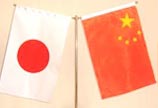Abe 'shut the door': CPPCC spokesman
Updated: 2014-03-03 02:18
By Li Xiaokun (China Daily)
|
|||||||||||
Lyu says bilateral dialogue depends on leader's future words and deeds
Sino-Japanese dialogue will be possible only after Japanese Prime Minister Shinzo Abe ends words and deeds that jeopardize bilateral relations and create regional tensions, a spokesman for China's political advisory body said on Sunday.
Relations with Japan were the only foreign policy topic that Lyu Xinhua, spokesman for the second session of the 12th National Committee of the Chinese People's Political Consultative Conference, touched upon at the news conference, which is generally seen as the start of the two sessions.
"The Japanese leader on one hand talks about having a face-to-face dialogue with Chinese leaders. On the other hand, in total disregard for the Sino-Japanese relationship and regional stability, he has compromised the interests of Japan's neighbors and hurt the feelings of the people of Asian countries victimized in World War II," he said.
 |
Calling Abe a "regional troublemaker ... playing a double game," Lyu said the Japanese prime minister "has lost his credibility with the Chinese government and the Chinese people".
After tensions rose sharply in 2012 due to the Diaoyu Islands territorial row, Beijing's relations with Tokyo further deteriorated when Abe visited the Yasukuni Shrine on Dec 26, the first visit by a sitting Japanese prime minister since 2006.
The shrine honors Japan's war dead including 14 Class-A World War II criminals.
"It is Abe who has shut the door on talks with Chinese leaders", the Foreign Ministry said.
Lyu said on Sunday that Abe's visit to the Yasukuni Shrine has seriously undermined the political foundation for Sino-Japanese relations.
Noting an ongoing movement to the right in Japan's politics, Lyu said future developments in Japan are a cause for concern.
Still, he added, "We have noticed that ... the Japanese people don't want to see Japan repeat its past mistakes, and the international community will not allow Japan to turn back the clock".
Zhou Yongsheng, a professor of Japanese studies at China Foreign Affairs University, said, "the spokesman made it very clear that it is not China, but Japan that has shut the door of communications, and he pointed the way out for Japan if it wants to end the impasse".
He said Lyu also made clear that those responsible for the frayed ties are not the Japanese people or other political forces in Japan, but "the group of right-wing and conservative forces led by Abe".
Shen Shishun, an Asia-Pacific studies researcher at the China Foundation for International Studies, said he believes "authorities in Japan and China do not want the status quo in bilateral ties to continue".
"It is understandable that Japan does not want to face the judgment of history forever and is trying to repair its image. The problem is with how Japan faces the atrocities it committed in the past — whether it does it the way Germany did, or the opposite way."
Beijing is deeply concerned that Japan, whose leaders have an inappropriate attitude toward the country's history, will have the tragedy in the war repeated, he said.
"Apparently, the German way was effective and was lauded around the world. But Japan, partially confined by its national character, still does not want to admit its crimes. So it is too early to talk about any major change in China-Japan relations."
He said that Japan will find itself forever under the shadow of historic issues and will continue to sacrifice much, given Tokyo's poor relations with its largest neighbor and the biggest economy in Asia.
"It is also bad news for China. But it is an issue on which we cannot compromise. If the right-wing forces go further, China will have to fight to the end."
Xinhua contributed to this story.
Related Stories
Shrine offers sanctuary to Abe's politics 2014-03-01 20:49
Where is the 'gate' to China-Japan dialogue? 2014-02-28 16:30
Breaking coin, presidential style 2014-02-28 15:42
Abe's reliability in doubt: Congress report 2014-02-27 07:20
Today's Top News
War in Ukraine a long shot, experts say
Beijing-area air better than before
EU condemns terrorist attacks in China
Abe 'shut the door': CPPCC spokesman
Putin not yet decided on use of force in Ukraine
28 dead in Kunming violence
China, UK hold dialogue on ties
Ukraine protests over airspace violation
Hot Topics
Lunar probe , China growth forecasts, Emission rules get tougher, China seen through 'colored lens', International board,
Editor's Picks

|

|

|

|

|

|





